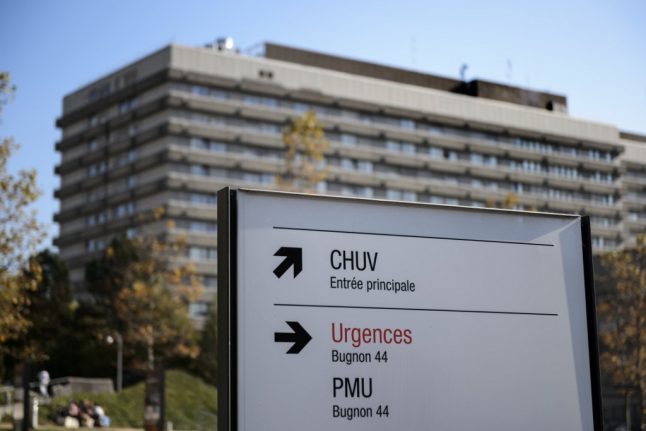There has been a sharp increase in the number of cases reported in Switzerland this week, almost quadrupling the highest number of infections recorded previously.
“The second wave has come earlier and stronger than we thought,” Health Minister Alain Berset said.
The number of hospitalisations has been soaring as well – in the past 14 days, the number of people admitted to hospital due to coronavirus complications went up from 177 to 622, according to Federal Office of Public Health (FOPH).
During the peak of the pandemic in March and April, the Swiss health care sector was not overwhelmed, having had sufficient resources to treat all patients needing coronavirus-related care.
In fact, Swiss hospitals took in 30 coronavirus patients from France, especially from Franche-Comté and Grand Est regions, whose medical facilities were saturated.
What is the situation now?
The first thing to know is that capacities of intensive care units, where most urgent Covid-19 patients are treated, vary from one canton to another.
The preparedness level may not be the same in cantons which don’t have large university hospitals with extensive resources and capacities.
To get prepared to handle the new onslaught of patients, hospitals must know how they can increase their capacities quickly.
To answer these questions, a team of researchers from the Swiss Federal Institute of Technology in Zurich (ETHZ) developed a monitoring system which forecasts over seven days the influx of patients, predicts needs, and redirects patients to other medical establishments.
The system focuses on intensive care units, where there are fewer beds but where more staff and equipment is needed.
This is the current situation in some parts of Switzerland:
Geneva
Geneva’s University Hospitals (HUG) estimate that the second wave of Covid-19 will be at least as serious as the spring outbreak. Between October 15th and 20th, the number of coronavirus patients has more than doubled to 169 people, 20 of whom are in intensive and intermediate care.
“We are very worried,” Geneva’s State Council President Anne Emery-Torracinta said.
The HUG has now been transformed into a hospital dedicated exclusively to Covid-19, as it was in the spring. This means that only urgent surgeries are maintained; non-essential interventions are suspended. Additionally, post-operative facilities will now be used as Covid units.
And as was the case in the spring, private clinics have been mobilised to treat coronavirus patients, relieving the pressure on public hospitals.
READ MORE: Swiss sound the alarm as coronavirus cases double Swiss sound the alarm as coronavirus cases double
Vaud
The number of patients is increasing rapidly in the intensive care unit of Lausanne’s University Hospital (CHUV), doubling in just one week.
CHUV’s director Philippe Eckert said the hospital had and still has space to accommodate additional patients, including 12 intensive care beds. And it is already preparing additional infrastructure “that may be needed very soon”.
“We will probably have to reduce certain activities from next week to free up employees,” Eckert said.
“We anticipated this wave. We are ready,” he added.
Fribourg
“The number of infected people has increased from 13 to 60 in ten days,” the hospital spokesperson said.
Five Covid patients, including three on respirators, are now in the intensive care unit, against one 10 days ago.
Valais
The canton, which has recorded a significant increase in the number of infections, is also getting prepared for the onslaught of patients.
According to Eric Bonvin, head of the Valais Hospital, “we are experiencing an increase in the number of hospitalisations linked to complications from Covid — 90 people, including six in intensive care”.
The hospital is not at full capacity at the moment, but in a “critical” situation” nevertheless, Bonvin added.



 Please whitelist us to continue reading.
Please whitelist us to continue reading.
Member comments